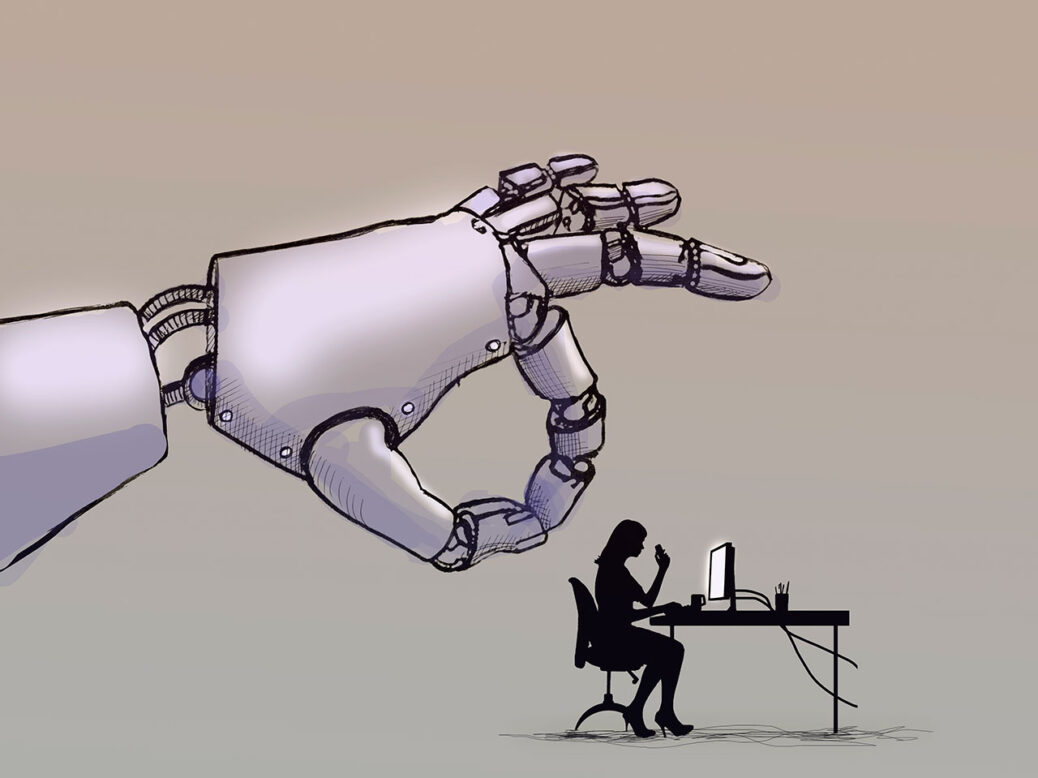
The SNP insists that it wants to give Scotland’s pupils a digital edge. In its 2021 Holyrood election manifesto, the party promised a laptop or tablet for every child to use in school and at home.
That pledge is yet to be fulfilled. Though some pupils now have a state-funded piece of tech, many are still waiting. Inequality is developing a digital edge, too – I’m told that laptops and tablets provided in Scotland’s poorer areas have simply disappeared. Children claim to have forgotten or lost them. Teachers fear some have been expropriated by family members, or have even been sold.
There is a problem, too, with computing science. Despite its growing centrality to everyday lives and the current and future jobs market, there are far too few specialist instructors, meaning classes are often taken by teachers of other subjects with a gap in their timetable and only a rudimentary understanding. There is little-to-no teaching of even basic coding – unless, of course, you attend a private school, where matters are much further advanced.
Mark Logan, the former chief operating officer of the Scottish £1bn-company Skyscanner and now the government’s chief entrepreneur, is pushing ministers to address the shortage of computing teachers. Could a version of the educational charity Teach First, which works in England and Wales, be developed so that computing graduates spend a few years in schools? Could industry do more? It feels like an issue that requires urgent examination.
That’s before we even get to the defining issue of artificial intelligence. The Scottish government’s approach to technology in schools is to throw a few things at the wall and see what sticks. There is little sense of central coordination, or that ministers are particularly knowledgeable or passionate about this vital area.
The recent independent Hayward Review of Qualifications and Assessment largely threw up its hands in the face of the digital onslaught, effectively arguing that it was a bit too early to make decisions. AI, it said, raises “questions about the knowledge, skills and competences learners will need to be qualified as citizens able to participate in a mid to late 21st-century democracy”.
It recommended, “as a matter of urgency”, that the Scottish government create a commission to explore the possibilities and limits of AI in education. It feels, however, as if a broader investigation is required, one that looks at how to maximise the entire digital revolution to the benefit of school pupils and the future of Scotland’s jobs market and economy.
For now, most of the thinking and innovation lie in the hands of external education entrepreneurs. The exciting AI-led and open-source Gen+ project has completed a year of teaching leadership, confidence, decision-making and other “meta-skills”, having taught 850 pupils in four state schools in one term last year.
Andrew Paterson, a Scottish businessman, has written a far-sighted and challenging research paper on how AI could fundamentally transform how education is delivered across lifetimes. “We are presented with an important choice either to embrace the imminent change or fall behind the countries that do,” writes Paterson. “The advantages of being an early adopting country will be extremely beneficial to the welfare of the population and to the economy.”
Dollar Academy, a private school in Clackmannanshire, has created a Futures Institute, known as FIDA, which offers free online courses to all Scottish schools and pupils, focused on critical thinking and problem-solving in areas such as climate change, poverty and social injustice. It is also offering free online courses in higher politics and economics, supported by a specialist teacher via video link, to pupils who have no access via their own schools.
Ian Munro, Dollar’s inspiring rector, said that FIDA has been developed to tackle the attainment gap and to provide “the greatest educational impact to the largest number of young people possible… The pandemic and its impact on schooling and exams is surely just one reason why it is right we question the educational status quo as well as the inconvenient truth that the current education system in the UK has largely been inherited from the 19th century.”
The Scottish government is aware and quietly supportive of these innovations, though given their non-state origins it doesn’t exactly boast about them. That needs to change; a burst of energy is required. A specific, open and ambitious review of how the digital revolution, in all its forms and with input from all possible sources, can improve the nation’s idling schools system is needed – and it is needed now.
[See also: Why the SNP is eating itself]





